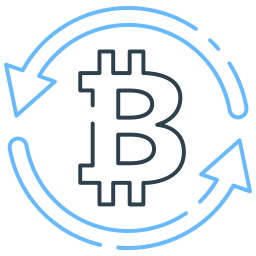This article will provide an in-depth comparison between Solana and Ethereum, two popular blockchain platforms that enable the creation and deployment of smart contracts. Smart contracts are self-executing contracts with the terms of the agreement written directly into lines of code. They have revolutionized the way we conduct transactions, store data, and create new business models.
As the demand for decentralized applications (dApps) continues to grow, both Solana and Ethereum are vying for smart contract supremacy. In this article, we will explore the key differences between these two platforms, including their underlying technology, scalability, security, and developer experience. By the end of this article, you will have a comprehensive understanding of which platform is best suited for your specific use case.
**Solana vs Ethereum: Key Differences**
1. Scalability: Solana’s proof-of-stake (PoS) consensus algorithm allows it to achieve faster transaction times and higher throughput than Ethereum, which relies on a more energy-intensive proof-of-work (PoW) consensus algorithm.
Solana’s validation layer is also designed to be more modular, allowing developers to easily add new features and upgrade the network without disrupting existing applications. In contrast, Ethereum’s PoW consensus algorithm requires significant computational resources and energy consumption, making it less scalable than Solana.
2. Developer Experience: Solana has a more streamlined developer experience thanks to its simplified programming model and wider range of development tools. The Solana CLI (command-line interface) is also easier to use than Ethereum’s web-based interface.
Additionally, Solana’s developer community is growing rapidly, with many new projects and applications being built on the platform every month. In contrast, Ethereum’s developer experience can be more complex due to its decentralized nature and the need for more technical expertise.
3. Security: Both platforms have robust security measures in place, but Solana’s PoS consensus algorithm provides a higher level of decentralization and reduced risk of 51% attacks compared to Ethereum’s PoW consensus algorithm.
Solana also has a more comprehensive set of smart contract tools and libraries, making it easier for developers to write secure and efficient code. In contrast, Ethereum’s security measures are still evolving, and the platform is not yet as decentralized as Solana.
4. Interoperability: Solana is designed to be highly interoperable with other blockchain platforms, thanks to its use of a standardized validation layer. This allows developers to easily integrate Solana-based applications with other blockchains.
In contrast, Ethereum’s interoperability capabilities are still limited due to its more complex consensus algorithm and the need for additional infrastructure to enable seamless interactions between different chains.
5. Cost: Solana has lower transaction costs compared to Ethereum, thanks to its more efficient validation layer and reduced energy consumption.
This makes Solana a more attractive option for applications that require high throughput and low latency, such as gaming and social media platforms. In contrast, Ethereum’s higher energy consumption and slower transaction times make it less suitable for these types of applications.
6. Ecosystem: Both platforms have a growing ecosystem of developers, projects, and applications, but Solana’s is still more concentrated around decentralized finance (DeFi) and gaming use cases.
Ethereum’s ecosystem is broader, with a larger focus on decentralized social media, file sharing, and other types of applications. However, Ethereum’s complexity and slower development pace make it less appealing to new developers and investors.
7. Roadmap: Solana has a more ambitious roadmap than Ethereum, with plans to launch a new layer-2 scaling solution called Serenity in the near future.
Solana also has a stronger focus on developer education and community building, with regular hackathons and meetups to promote innovation and collaboration. In contrast, Ethereum’s roadmap is less clear-cut, with ongoing debates about the direction of the platform and the need for more significant upgrades.
Conclusion: Both Solana and Ethereum are powerful blockchain platforms that offer unique strengths and weaknesses. Solana’s streamlined developer experience, faster transaction times, and lower costs make it an attractive option for decentralized applications that require high throughput and low latency.
However, Ethereum’s broader ecosystem, more established reputation, and stronger focus on decentralized social media and file sharing make it a more suitable choice for certain use cases. Ultimately, the choice between Solana and Ethereum will depend on your specific needs and goals as a developer or investor.
Tags:
1. Smart Contract Platforms
2. Blockchain Comparison
3. Solana vs Ethereum
4. Scalability in Blockchain
5. Decentralized Applications



